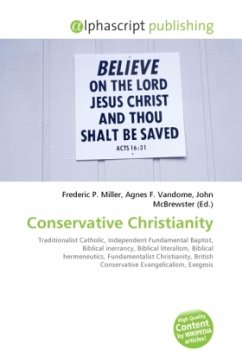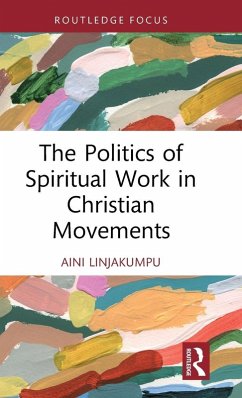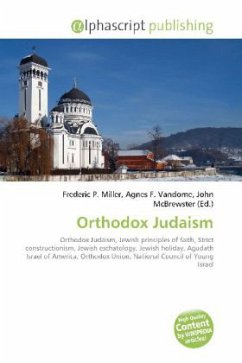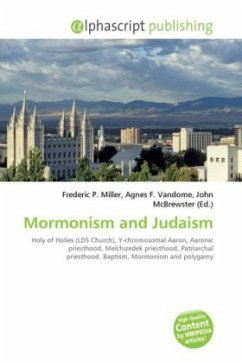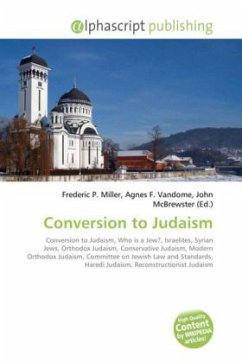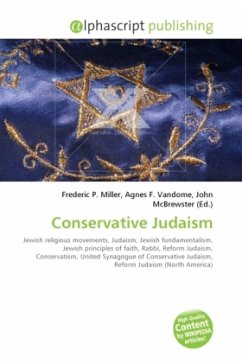
Conservative Judaism
Versandkostenfrei!
Versandfertig in 6-10 Tagen
36,99 €
inkl. MwSt.

PAYBACK Punkte
18 °P sammeln!
Conservative Judaism (also known as Masorti Judaism outside of the United States and Canada) is a modern stream of Judaism that arose out of intellectual currents in Germany in the mid-19th century and took institutional form in the United States in the early 1900s. The principles of Conservative Judaism include: A deliberately non-fundamentalist teaching of Jewish principles of faith; A positive attitude toward modern culture; and an acceptance of both traditional rabbinic modes of study and modern scholarship and critical text study when considering Jewish religious texts. Conservative Judai...
Conservative Judaism (also known as Masorti Judaism outside of the United States and Canada) is a modern stream of Judaism that arose out of intellectual currents in Germany in the mid-19th century and took institutional form in the United States in the early 1900s. The principles of Conservative Judaism include: A deliberately non-fundamentalist teaching of Jewish principles of faith; A positive attitude toward modern culture; and an acceptance of both traditional rabbinic modes of study and modern scholarship and critical text study when considering Jewish religious texts. Conservative Judaism has its roots in the school of thought known as Positive-Historical Judaism, developed in 1850s Germany as a reaction to the more liberal religious positions taken by Reform Judaism. The term conservative was meant to signify that Jews should attempt to conserve Jewish tradition, rather than reform or abandon it, and does not imply the movement's adherents are politically conservative.





